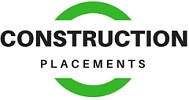Last Updated on November 11, 2024 by Admin
Enterprise Resource Planning (ERP) systems are important tools for businesses, including those in construction. These systems combine key business processes into one platform, helping organizations manage resources, improve operations, and boost efficiency.
In construction, where projects can be complex and budgets tight, ERP systems are especially valuable. They provide real-time data access, improve communication among team members, and give insights that help with decision-making.
Choosing a construction-specific ERP is important because it meets the unique challenges of the industry. Regular ERP systems might not have the necessary features, while specialized ERPs include tools for managing contractors, scheduling projects, handling finances, and ensuring compliance. Using a construction ERP helps companies improve their operations, reduce inefficiencies, and get better results.
Table of Contents
What is ERP
Enterprise Resource Planning (ERP) systems are software platforms that help manage and streamline a company’s main business processes. By bringing together data and automating tasks, ERP systems improve communication and teamwork among different departments.
This integration allows organizations to work more efficiently, as everyone has access to real-time information that helps with decision-making and boosts productivity. Essentially, ERP connects key functions like finance, human resources, supply chain management, and project management into one system.
Components of an ERP System
ERP systems have parts, called modules, each designed for specific business functions. These modules work together within a central database, giving a complete view of the organization’s data and processes. Key components typically ERP include:
- Financial Management: Handles all financial tasks like accounting and budgeting, ensuring accurate tracking and compliance.
- Human Resource Management (HRM): Manages employee data, payroll, and benefits, streamlining HR processes.
- Project Management: Helps plan, schedule, and track construction projects effectively.
- Supply Chain Management (SCM): Oversees procurement, inventory, and logistics to ensure timely delivery of materials.
- Customer Relationship Management (CRM): Manages customer interactions and sales, improving customer satisfaction.
- Inventory Management: Tracks inventory levels and controls stock to reduce costs.
- Business Intelligence (BI): Provides analytics and reporting tools for data-driven decision-making.
These components can be customized to meet an organization’s specific needs, allowing businesses to improve efficiency and coordination across departments.
Challenges of Using Generic ERPs in Construction
Limitations of Generic ERPs for Construction
Generic ERP systems are made for many industries, but they often lack features needed in construction. Construction projects involve specific tasks like job costing and scheduling, which generic ERPs may not handle well. This makes it difficult for construction companies to use them effectively, especially when managing multiple projects or needing mobile access on-site.
High Customization Costs
To make a generic ERP suitable for construction, businesses usually have to pay for costly customizations. This can take a lot of time, as developers need to create the missing features. Ongoing updates and maintenance for these changes can add even more expenses. Overall, using a generic ERP can be more expensive than choosing a construction-specific ERP that already has the necessary features.
Factors to Consider When Choosing a Construction-Specific ERP
When selecting a construction-specific ERP, there are several important factors to keep in mind:
- Scalability: Make sure the ERP can expand as your business grows. You want a system that can handle more projects and users without needing a complete overhaul.
- Customization: Look for an ERP that allows you to change workflows and create reports that fit your specific needs. This helps ensure the system works well for your unique processes.
- User Experience and Training: The ERP should be user-friendly for everyone, from workers on-site to office staff. Good training resources are also important to help users learn the system quickly.
- Vendor Support and Services: Choose a vendor that offers strong support and understands the construction industry. This will help you resolve issues faster and get the most out of your ERP.
- Implementation Time and Costs: Consider not just the purchase price but also how long it will take to set up the ERP and any additional costs involved. Knowing the total cost helps you budget better.
- Security and Data Protection: Make sure the ERP has strong security features to protect your data. This is especially important in construction, where sensitive information is often handled.
- Success Stories and Case Studies: Look for examples of how other construction companies have successfully used the vendor’s ERP. Success stories can give you confidence in your choice.
By considering these factors, you can choose an ERP system that fits your construction business well and helps you succeed.
Top Construction ERP Vendors in the Market
| Software | Features | Who It’s For | Price | Pros | Cons |
| Procore | Construction management tools (project management, job costing, subcontractor management) | Small and large construction companies | Based on project size, affordable for mid-large firms | Great project management and mobile support | Can be pricey for smaller companies; limited customization without extra cost |
| Viewpoint (Trimble) | Integrated construction ERP (financial management, project controls, job costing) | Medium and large construction firms | Varies based on customization, suitable for medium-large businesses | Deep integration with Trimble products; comprehensive financial tools | Complex interface; high initial cost for implementation |
| Jonas Construction Software | Full suite of ERP tools (accounting, job costing, document management) | Small to mid-sized businesses | More affordable than larger platforms | Strong customer support; extensive financial tools | Dated user interface; limited third-party integrations |
| CMiC | Comprehensive ERP platform (financial management, project controls, enterprise planning) | Large enterprises and projects | Generally high-priced, suitable for large businesses | In-depth features for large firms; good for complex projects | Expensive; longer implementation timeline |
| Sage Construction and Real Estate | Strong financial management, job costing, and payroll features | Small to medium-sized firms | More affordable than some competitors | Excellent financial tools; good for small-medium firms | Limited project management features; steep learning curve |
Best Practices for ERP Implementation in Construction
1. Stakeholder Involvement
Involving key stakeholders such as project managers, accounting teams, and site staff is critical for a successful ERP implementation. These people use the system daily and understand the business’s operational needs.
Their feedback helps ensure that the ERP aligns with real-world requirements. By involving different departments early on, companies can make better decisions about which features are essential, ensuring smooth integration and reducing future complications.
2. Data Migration
Data migration is the process of transferring data from old systems into the new ERP. This step requires careful planning and preparation to avoid errors and data loss. It’s important to clean and organize the data before migration to ensure only accurate, relevant information is moved.
A thorough backup of the original data is also recommended to prevent any unexpected issues. Successful data migration ensures continuity and prevents delays in project management or accounting processes.
3. Training and Support
Comprehensive user training is essential for maximizing the ERP system’s potential. Employees need to know how to use the system effectively, from tracking project progress to managing finances. Training should be hands-on, tailored to different departments, and include follow-up sessions as the company starts using the ERP.
Equally important is having post-implementation support available for troubleshooting issues that arise after the system is live, helping users to resolve challenges and adapt smoothly.
4. Phased Rollout
A phased rollout is often the best strategy for ERP implementation to minimize disruption. Instead of launching the entire system all at once, start with key departments or processes and gradually integrate others.
This allows users to adjust to the new system without overwhelming them. It also makes it easier to identify and fix any issues before rolling the ERP out across the entire organization. A phased approach reduces risks and ensures smoother transitions for teams.
By following these best practices, construction companies can ensure a smoother ERP implementation process, reducing the likelihood of costly errors and maximizing the system’s effectiveness.
Common Pitfalls to Avoid in ERP Implementation
When setting up a construction-specific ERP system, be aware of these common mistakes:
- Over-Customization
- Customizing the ERP too much can lead to high maintenance costs. While it’s tempting to tailor everything, extensive changes can complicate updates and increase expenses.
- Ignoring Scalability
- Failing to consider how the ERP will grow with your business is a big mistake. Choose a system that can expand as your projects and team grow, ensuring it remains effective over time.
- Poor Integration
- If the new ERP doesn’t work well with your existing tools, it can cause inefficiencies. Ensure the ERP can integrate smoothly with software you already use, like accounting or project management tools.
- Inadequate Vendor Evaluation
- Not thoroughly checking a vendor’s long-term support and update policies can lead to problems later. Make sure the vendor offers reliable support and regular updates to keep your system functioning well.
By avoiding these pitfalls, you can enhance the success of your ERP implementation.
Conclusion
A construction-specific ERP is necessary for addressing the unique needs of construction companies, from managing subcontractors and job costing to compliance and safety requirements. These systems are built to handle the complexities of construction projects that generic ERPs often overlook, saving time, reducing errors, and improving efficiency.
When choosing the best ERP for your company, consider your business size, the growth potential, and specific operational needs. Larger firms may need more robust features like comprehensive project management and scalability, while smaller companies might prioritize affordability and ease of use.
Related Posts:
- All About ERP Systems for Construction Companies
- Best Construction Management Software: Revolutionizing the Construction Industry
- Finding the Right Construction Technology Solutions for Your Project
- Top Software File Formats in the Construction Industry


